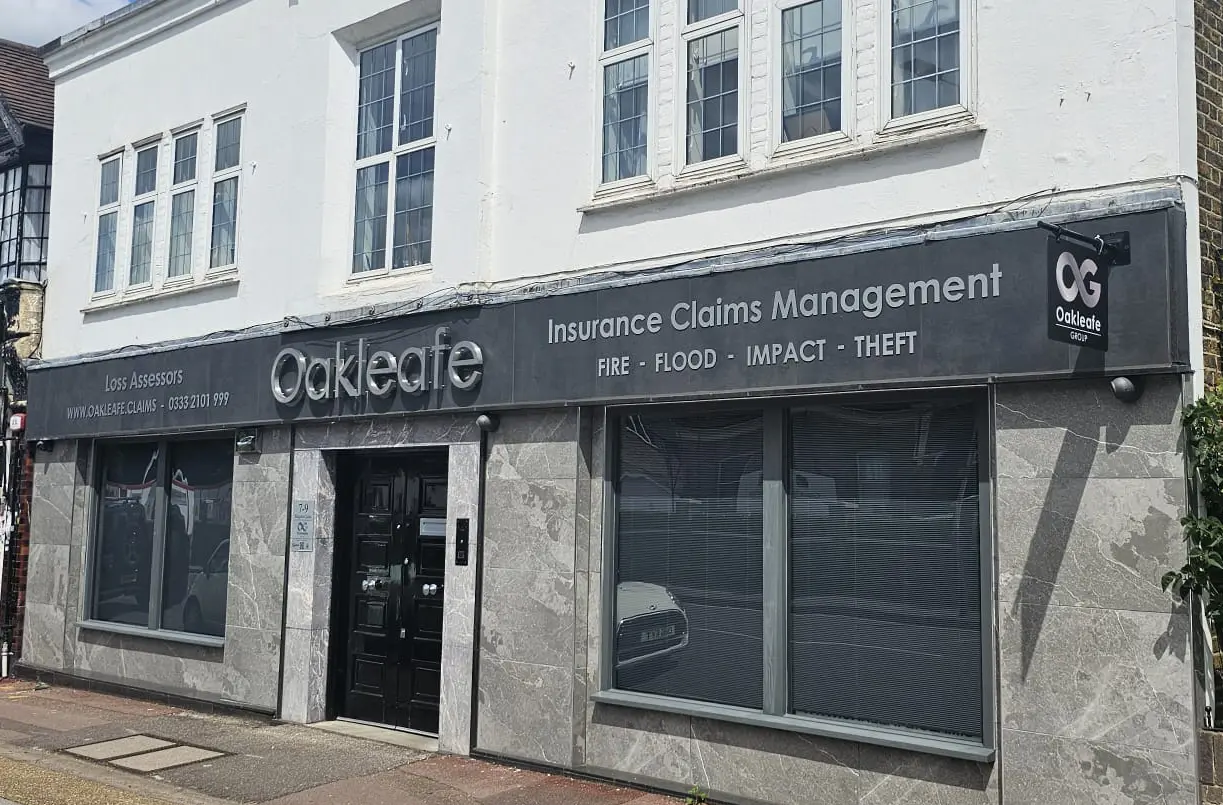


Oakleafe Claims,
7, 9 Balgores Ln,
Gidea Park,
Romford
RM2 5JS
Tel: 03332101999


What Oakleafe’s Loss Assessor Essex Clients say:
As an Essex resident, facing an insurance claim can feel overwhelming, especially with the unique challenges posed by our coastal location and local economy. With rising property insurance premiums and the increasing frequency of severe weather events, it’s more important than ever to understand how to navigate the claims process effectively. Whether dealing with storm damage, fire or water damage, or theft claims, being prepared and informed is your best defence.
Essex’s coastal location makes it susceptible to weather-related damage, such as storms and flooding. Storms can cause significant damage to properties, while flooding is a constant threat due to the county’s proximity to major rivers like the Thames and Chelmer.
Key Tips:
Accidental damage claims are common, ranging from a cracked window to a damaged roof. Prompt reporting and thorough documentation are essential to a smooth claims process.
Key Tips:
Essex has seen fluctuating trends in theft and burglary, with certain areas being more susceptible than others. Implementing preventive measures can significantly reduce your risk.
Key Tips:
Fire damage is another significant concern, particularly in urban areas. Ensuring your property is fire-safe can prevent devastating losses requiring restoration.
Key Tips:
Certain parts of Essex are prone to subsidence, especially areas with clay soil. Identifying and addressing subsidence early can save you from extensive damage.
Key Tips:
Documenting the Damage
Effective documentation is crucial for a successful claim. Photos, videos, and detailed notes can make a significant difference.
Contacting the Insurance Company
Contact your insurer promptly and be prepared to provide all necessary information, including the date, time, and cause of the damage.
Working with loss Assessors Essex
Loss assessors play a vital role in the claims process. They will visit your property to assess the damage and help determine the claim’s value.
Obtaining Repair Estimates
Get repair estimates from reputable local contractors. Detailed documentation of these estimates will be invaluable during the claims process.
Geographic Location
Essex’s coastal and riverine areas are particularly vulnerable to flooding. Properties near the coast or rivers should have robust flood defenses in place.
Economic Activity and Development
The thriving construction sector and ongoing developments in Essex can influence insurance claims. New developments can lead to an increase in construction-related claims.
Economic Activity and Development
The local construction sector and business growth result in varied commercial insurance claims, including those for business interruption and property damage.
Property Values
Rising property values mean higher repair and replacement costs, impacting claim amounts. This is particularly significant in areas experiencing rapid development.
Weather-Related Claims
Weather events, such as floods and storms, can lead to significant business interruptions. The local economy’s reliance on coastal areas exacerbates these impacts.
Local Government and Infrastructure
Essex County Council’s flood defence programs are crucial for reducing flood-related insurance claims. The council also offers grants for flood resilience measures .
Economic Resilience and Recovery
Business interruption claims are vital during economic downturns. Investment in infrastructure can stabilise the economy and mitigate large-scale insurance claims.
Coastal and River Flooding
Due to Essex’s long coastline and major rivers, various types of flooding are a significant risk. Historical flood events have shown the impact on property claims.
Storm Damage
Essex regularly experiences storm damage. Preparing for storms can mitigate some of the risks associated with these events.
Subsidence and Burst Pipes
Areas with clay soils are prone to subsidence, especially during dry spells. Cold winters increase the likelihood of burst pipe claims.
Coastal Erosion and Sea Level Rise
Long-term implications of coastal erosion and rising sea levels are becoming more apparent. These factors will increasingly affect property insurance in coastal areas.
Dealing with property insurance claims in Essex doesn’t have to be a daunting task. By understanding the unique risks and managing the claims process, you can protect your home or business and ensure you receive the compensation you deserve. Here are the key takeaways and a clear set of actions to guide you:
Key Takeaways:
Clear Set of Actions:
By following these steps and staying proactive, you can confidently navigate Essex’s property insurance claims process. By being well-prepared and informed, you can protect your property, ensure fair settlements, and achieve peace of mind. Take control of your insurance strategy today and secure your assets for the future.


